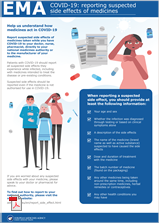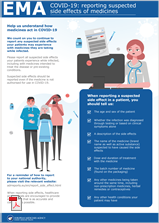Public-health advice on COVID-19 medicines
Since the onset of the COVID-19 pandemic, the European Medicines Agency (EMA) has provided impartial advice to patients and healthcare professionals on the safe use of medicines, in particular in patients with or at risk of COVID-19 infection.
HumanCOVID-19

